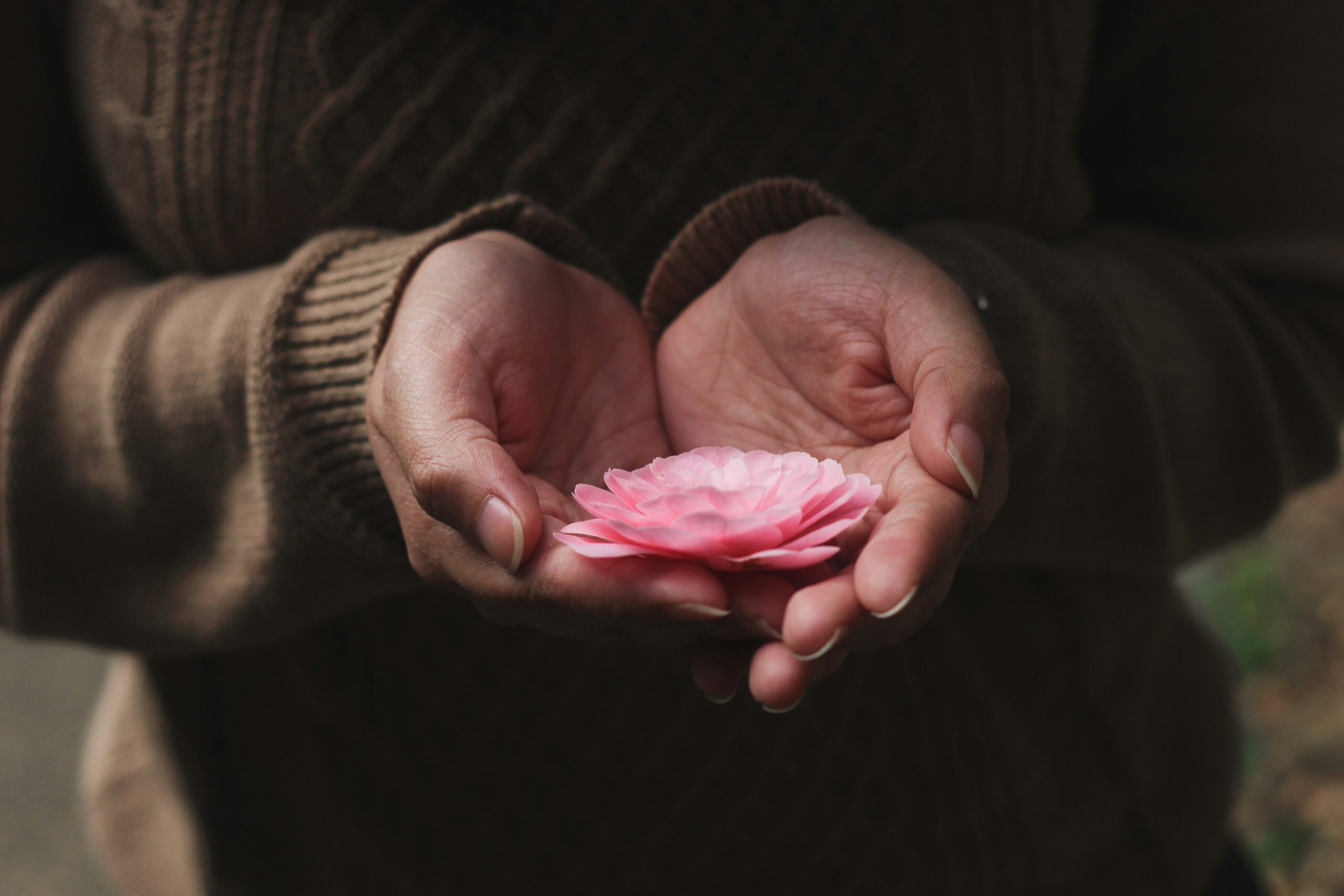Wrestling with Gratitude? Hint: Your Thanks Requires a Giving
My third-grade teacher had tons of holiday traditions and craft ideas. One of her best was the 17 construction paper cornucopias she taped to the wall outside our classroom. The entire school admired them as they lined up for lunch or recess or the bus throughout the month of November. I remember feeling so seen that she had taken time to personally sit down at the desk of each student in our class to explore what we were thankful for, and then helped us print (and spell) them on the individual apples, ears of corn, pumpkins, and leaves that we glued inside our personal “horns of plenty.” For our part, it took lots of time and consideration to figure out just what words to choose, to pinpoint our blessings.
Mostly, I looked forward to giving my labor of love to my parents as we sat down for our Thanksgiving pie.
THE GIVING PART
I always wondered about the giving part of Thanksgiving. We could have referred to the act as “saying thanks,” or “being thankful.” Where did the “giving” of thanks come from?
The English phrase “thank you” usually follows a gift. It’s rooted in the word “think” and originally meant “I will remember what you did for me.” I remember and acknowledge the gift. (I’m still haunted by the angst of the graduation and wedding thank-you notes that had to follow every pen set and toaster.)
I’m starting to see that a deeper meaning of thanksgiving found in Scripture is actually not a giving waiting on a thanks. But instead, sometimes our thanks is the gift itself. The Spirit has always known that, in the most important ways, a true thanks requires a giving. And not the other way around.
Sometimes our thanks is the gift itself. The Spirit has always known that, in the most important ways,
lori ann wood
a true thanks requires a giving.
GRATITUDE COSTS US
Perhaps the most important part about giving thanks is that—like any heartfelt gift—in order to give it, it must cost us something.
The turning point in my cornucopia story is when I pulled it out of my folder to present it to my parents, post-turkey. The one I had to give wasn’t actually mine. (I later learned that mine had been damaged beyond repair in that busy hallway outside our classroom, so the teacher had substituted her own at the last minute.)
Though I have a hunch they already knew, I had to come clean to my parents that the perfectly cut cornucopia wasn’t mine. And neither were the grown-up penmanship or the sentiments of being thankful for “freedom to worship” or “clean water” or “food to eat” that my teacher had done as examples. My thanks would have been much different, more personal, and something that cost an eight-year-old something. It was really the teacher who had done the giving of that thanks.
In 2 Samuel, King David insists on paying the full price for land and oxen to sacrifice. He would not sacrifice something to the Lord unless it came at a price to him:
I will not offer burnt offerings to the Lord my God that cost me nothing.
2 Samuel 24:24, NIV
Like the many times my mother pressed a quarter into my palm as the collection basket came near. As I plopped it in, it didn’t really feel like giving because it hadn’t cost me anything.
Giving thanks is a lot like that.
lori ann wood
We cannot give it, make a sacrifice of it, unless it costs us.
Giving thanks is a lot like that. We cannot give it, make a sacrifice of it, unless it costs us. That is the point of the giving, after all. That it hurts a little and in the releasing, we are exhibiting trust and showing adoration for the receiver of our gesture.
One of my favorite authors put it this way:
To sacrifice something is to make it holy by giving it away for love.
Frederick Buechner
When we sacrifice, and give thanks despite our current situation, we are making our words holy.
A sacrifice is taking something ordinary, a commodity, and making it into something priceless by simply giving it in love, at a cost to us. Like simple, everyday thanks.
But as Abraham discovered in the gut-wrenching cost he had to feel to sacrifice Isaac, the cost when we are talking about thanksgiving to God can be bigger than we bargained for:
Sometimes the cost to us is time, our attention.
Sometimes it involves us giving up our façade of “I’ve got this.”
Sometimes a thanks-giving requires a sacrifice of control, an admission of vulnerability.
Maybe most often what He’s asking us to give—to sacrifice—is part of ourselves, our own desires, life on our terms.
From my journal:
Nine (how can it be nine?) years ago this month I was first diagnosed with end-stage heart failure. So much has changed and yet not much at all with my heart. I had planned to have this disease far in the rearview mirror by now. But I can’t shake the feeling that as much as it feels like I’m waiting on God, what if He is actually waiting on me? For my weakness, for my surrender, for my acknowledgement of His sovereignty? Over these years, I’ve experienced that when my reality and my plan don’t align, my gratitude can get derailed. But maybe He’s waiting on me to give up my expectation of an easy or a resolved life. Maybe that’s the sacrifice my gratitude has been missing all along.
WHAT GRATITUDE GIVES
Just as a proper gift of gratitude involves a cost, it also brings benefits. And as He always does, our good Father heavily tips that scale in our favor.
Physically, gratitude improves sleep, motivates exercise, boosts our immune systems, reduces inflammation, and even improves outcomes with serious illnesses like cancer and heart disease.
Psychologically, gratitude helps regulate the production of cortisol in the brain, reducing stress and anxiety. When we express gratitude, our brain releases dopamine and serotonin, neurotransmitters that contribute to feelings of happiness and pleasure. A regular gratitude practice improves our resiliency so we are better able to cope with ongoing negative aspects, leading to an improvement in overall quality of life, despite little change in physical circumstances.
…give thanks in all circumstances; for this is God’s will for you in Christ Jesus.
1 Thessalonians 5:18, NIV
Socially, gratitude can activate neural pathways in the brain to help restructure negative thoughts and manage social circumstances. Gratitude can strengthen relationships by creating a heightened awareness and a greater understanding of others. Thanks forces us outside ourselves.
Gratitude fits into a category of what we would call pro-social emotions, and these are emotions that orient us towards the welfare of others. (In this way), gratitude is key to our survival as a species.
Emiliana Simon-Thomas, head of the Greater Good Science Center at UC Berkeley
Still, even with all this goodness, the biggest blessing—by far—is a spiritual one.
AN UNLIKELY BLESSING
Over the last nine seasons of thanks since becoming a heart failure patient, I wish I could say gratitude has eased my illness— far from it. In fact, I can say that gratitude has made my unresolved trial more noticeable because He hasn’t chosen to take this thorn away. But it also reminds me of my choice of dependence on Him, my continued belief that He controls all things. The pain has made me aware of the fact that I am in contact with the One who can help manage it. And it has connected me with a larger—also hurting—world.
Gratitude isn’t only a celebration when good things happen;
Ann Voskamp
Gratitude is a declaration that God is good no matter what happens.
Gratitude was never meant to be a cure for pain — a salve that can be applied when things get bad to lessen the blow. Instead, it’s a regular practice that shores up our reserves, and changes how we perceive the hard times. It also connects us. To others, and to God. And in the giving of the thanks, the unresolved problem is part of the cost of the sacrifice.
In the giving of the thanks, the unresolved problem is part of the cost of the sacrifice.
lori ann wood
Maybe most of all, the chronic part of my condition has given me the gift of time. Those years have changed me. I’ve noticed that my own gratitude has become more fine-tuned—more specific—over time.
It has shifted to (sort of) being grateful for my illness. Or at least grateful for the chance to put the pain in perspective. Grateful to walk alongside people I’d otherwise never have met, grateful for my own honest searching, grateful for grainy glimpses of God still at work, grateful for a renewed purpose in a fallen, hurting world.
Now that the realization has come at a cost to me, I’m wondering if these blessings would even fit inside my construction paper cornucopia.


What a beautiful reflection on gratitude, Lori! It’s so interesting to reflect on how we sometimes grow in gratitude through hard times. You have articulated this mystery very well!
I agree, Brad. It seems counter-intuitive that difficulties would grow our gratitude, but that has certainly been my experience. As I continue to hope to avoid hardship, I am challenged to remember this. God has many gifts in the valleys.
Your helpful words offer a deep look into thanksgiving as a “sacrifice of praise” as opposed to a free and flippant “thank you.” The LORD is worthy of our praise no matter what! Thank you for sharing your words.
It’s so encouraging to know that my thoughts hit home with you, Jeri! I do believe that sometimes a hard-fought gratitude is the deepest. Great to hear from you.
This hit home with me. I have always and frequently thank God for all He has done for me. But I never thought about it from your viewpoint. It will certainly change my giving thanks as a matter of course and of necessity. I am certainly going to increase my giving into a sacrifice of praise and thanksgiving. Thank you for sharing.
Amelia Scriven
I am encouraged by your testimony of frequent thanks, Amelia. I hope framing it as a costly sacrifice will help us both offer thanks even more. Great to hear from you!